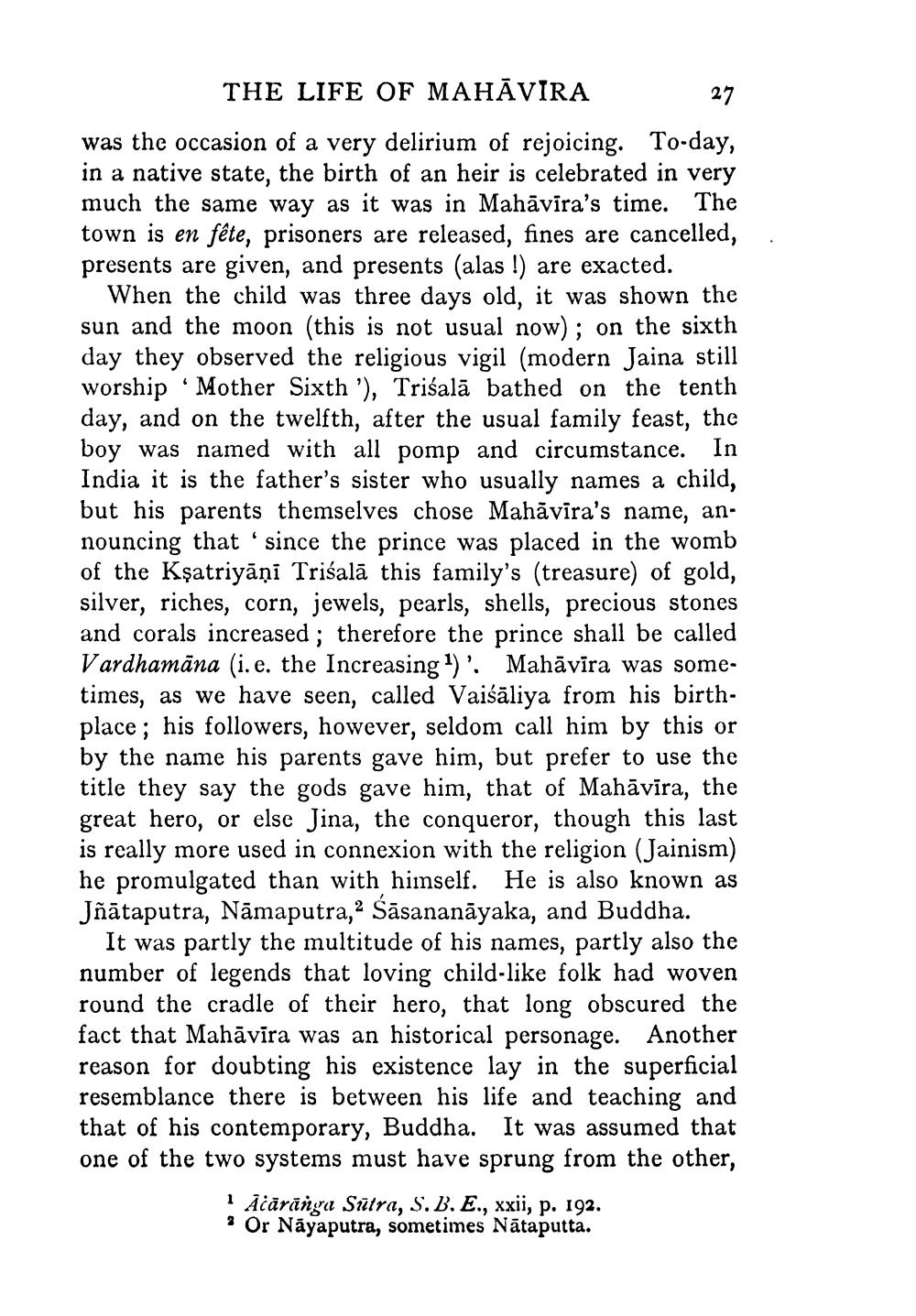________________
27
THE LIFE OF MAHAVIRA was the occasion of a very delirium of rejoicing. To-day, in a native state, the birth of an heir is celebrated in very much the same way as it was in Mahāvīra's time. The town is en fête, prisoners are released, fines are cancelled, presents are given, and presents (alas !) are exacted.
When the child was three days old, it was shown the sun and the moon (this is not usual now); on the sixth day they observed the religious vigil (modern Jaina still worship Mother Sixth '), Trisalā bathed on the tenth day, and on the twelfth, after the usual family feast, the boy was named with all pomp and circumstance. In India it is the father's sister who usually names a child, but his parents themselves chose Mahāvīra's name, announcing that 'since the prince was placed in the womb of the Kşatriyāņi Trišalā this family's (treasure) of gold, silver, riches, corn, jewels, pearls, shells, precious stones and corals increased; therefore the prince shall be called Vardhamāna (i.e. the Increasing 1)'. Mahāvīra was sometimes, as we have seen, called Vaiśāliya from his birthplace; his followers, however, seldom call him by this or by the name his parents gave him, but prefer to use the title they say the gods gave him, that of Mahāvīra, the great hero, or else Jina, the conqueror, though this last is really more used in connexion with the religion (Jainism) he promulgated than with himself. He is also known as Jñātaputra, Nāmaputra, 2 Sāsananāyaka, and Buddha.
It was partly the multitude of his names, partly also the number of legends that loving child-like folk had woven round the cradle of their hero, that long obscured the fact that Mahāvīra was an historical personage. Another reason for doubting his existence lay in the superficial resemblance there is between his life and teaching and that of his contemporary, Buddha. It was assumed that one of the two systems must have sprung from the other,
1 Aiāranga Sūtra, S.B. E., xxii, p. 192. ? Or Nāyaputra, sometimes Nātaputta.




